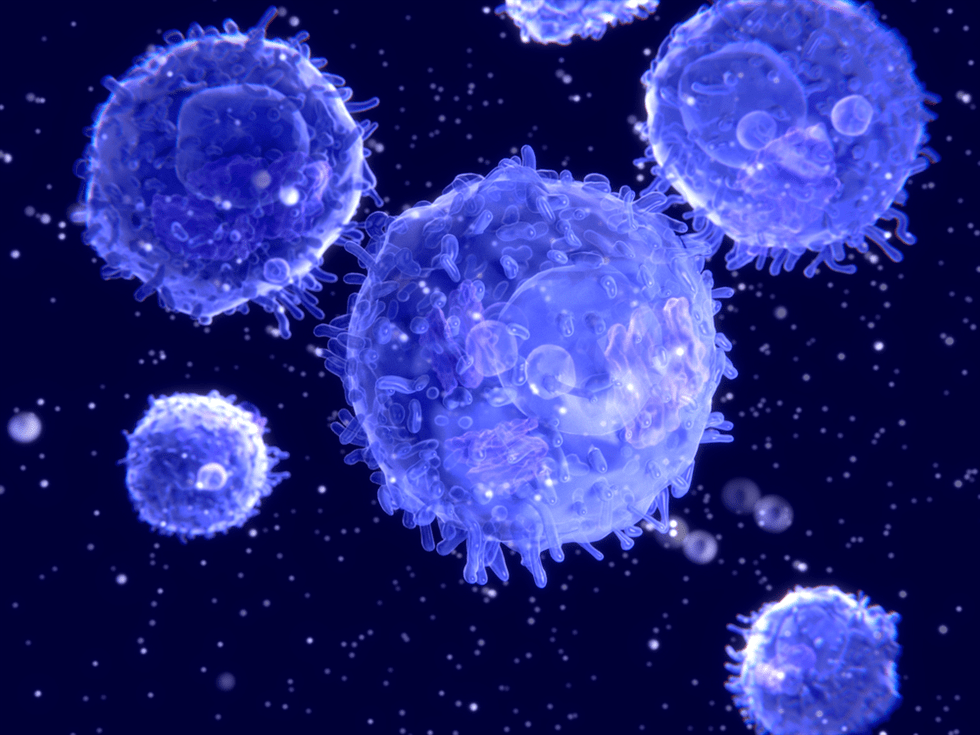Are you one of the millions of Americans suffering from gastrointestinal issues? A lot of our patients come to us feeling like a bowling ball is stuck in their gut. The gas, the bloating, diarrhea and/or constipation can be unbearable.
If you’ve been given one of the following disheartening diagnosis, there is good news, research is finally unveiling a possible root cause of:
- Irritable bowel syndrome
- Leaky gut
- Crohn’s disease
- Celiac disease
Small intestinal bacterial overgrowth, or SIBO, is an overgrowth of bacteria in your small intestine. Meaning, bacteria has ended up somewhere it doesn’t belong. This can cause intestinal inflammation leading to multiple gastrointestinal issues as well as chronic illnesses.
What is SIBO?
Small intestinal bacterial overgrowth is when bacteria – good or bad – start to grow in your small intestine. Most of your gut microbiota, which is your gut bacteria, can be found in your large intestine. So when your bacteria migrate from their home to a place they shouldn’t be – your small intestine – this upsets the balance of your bacteria causing gut dysbiosis.
When you eat, you’re not only feeding yourself, but trillions of little bacteria in your gut as well. And when you feed your gut bacteria high glycemic foods such as carbohydrates, sugar, and alcohol they ferment these foods which create hydrogen gas as a byproduct. This gas is what causes bloating, abdominal cramping, and diarrhea. The toxic byproducts of these bacteria can also cause intestinal inflammation and cause decreased gut motility (constipation).
Archaea can also set up shop in your small intestine. These guys feed off of the hydrogen produced by other bacteria and produce methane gas as their byproduct. Methane gas can decrease gut motility by 59% which contributes to chronic constipation symptoms. Archaea are known to be very hard to treat due to their resistance to antibiotics.
Symptoms of SIBO
Patients with small intestinal bacterial overgrowth can experience gastrointestinal symptoms similar to irritable bowel syndrome. This is because SIBO and IBS cause similar issues in the body.
Patients can also experience systemic reactions with SIBO – this is when the bacteria stimulate inflammatory cytokines in your gut. These cytokines can disturb your gut lining causing inflammation and permeability allowing food particles and toxins to enter your bloodstream, wreaking havoc on your immune system.
Common symptoms of SIBO include:
- Bloating
- Constipation
- Diarrhea
- Abdominal cramping
- Nausea
- Burping
- Malnutrition
- Food intolerances
- Allergies
- Anxiety
- Fatigue
- Rash
- Headaches
- Depression
- Asthma
- Rosacea
- Gastroesophageal reflux disease
- Scleroderma
We have also seen high cases of SIBO in our patients with Lyme disease, mold illness, chronic fatigue syndrome, diabetes, MCAS, and fibromyalgia.
Gut health is important to your overall health. When a dysbiosis of your gut bacteria occurs it can have a trickle-down effect on your body causing multiple health issues. This is why you can see a wide range of symptoms with small intestinal bacterial overgrowth.
Causes and Risk Factors of SIBO
Why do bacteria all of a sudden start growing in places it shouldn’t?
One contributing factor to small intestinal bacterial overgrowth is having low gastric acid secretions. Since these secretions inhibit bacterial growth, not having enough can provide bacteria with a perfect environment to thrive. Medications like proton pump inhibitors can lower your gastric acid secretions contributing to the growth of bacteria in your small intestine.
Certain triggers can also affect the proper functioning of the gut resulting in bacteria proliferating in your small intestine. Enzymes in your digestive system help digest your food while the nerves and muscles help physically move your food and bacteria along your digestive tract from the stomach to your small bowel and finally to your colon.
Any event which causes an upset in your intestinal motility or nerve damage in your gut can lead to SIBO.
Common causes or risk factors of SIBO:
- Diets high in sugar, carbohydrates, and alcohol
- Traveler’s diarrhea and other infections
- Food poisoning
- Stomach flu
- Aging
- Abdominal/pelvic surgery
- Crohn’s disease
- Celiac disease
- Diabetes
- Low stomach acid
- Bowel obstruction
- Antibiotics
- Lyme disease
- Parkinson’s disease
- Diverticuli
- Traumatic brain injury
- Radiation to abdominal/pelvic area
- Appendicitis
- Medications
- Scleroderma
Studies also show people with a low ileocecal valve pressure have a high risk for small intestinal bacterial overgrowth as well. This valve closes off backflow from the large intestine to the small intestine. If your ileocecal valve is damaged it can cause a regurgitation of bacteria into the small intestine.
You can easily see that anything affecting your digestive system’s natural function can cause an overgrowth of bacteria. This is why it’s important to find the cause of SIBO and eliminate it.
SIBO Diagnosis
To diagnose SIBO, doctors use a hydrogen breath test to determine the amount of hydrogen and/or methane being produced in your gut.
Patients have to follow a certain diet or fast depending on the test. You’re then given a solution containing either glucose or lactulose which feeds the bacteria so they can produce the hydrogen or methane gas.
The breath test determines the amount of hydrogen and/or methane in your body. Since Archaea feed off hydrogen in your small intestine, if you test positive for methane, then you can bet hydrogen-producing bacteria have set up shop in your small intestine as well.
How to Treat SIBO
Treatment for small intestinal bacterial overgrowth should be extremely individualized. If the overgrowth of bacteria is common and somewhat tame, a simple change in diet can cure it. Starving the bacteria of their essential foods is important.
Following a low FODMAP diet, which reduces certain types of carbohydrates, can be your first step in treating SIBO. Others who need a more vigorous diet to starve off the bad bacteria can experience improvement by following the Specific Carbohydrate Diet.
Eliminating sugar and alcohol from your diet is important since these can be like a Thanksgiving feast for these bacteria.
Don’t forget fiber is a complex carbohydrate, which is non-digestible by your body. Reducing your fiber intake during your treatment may also be important.
A new organic supplement called Atrantil is aimed at eliminating the hostile archaebacteria in methane-producing SIBO patients. Studies for Atrantil show an 88% success rate in SIBO patients.
Probiotics have been a controversy over helping SIBO. Since some bacteria are very volatile, it’s hard to kill them with just an influx of good bacteria in your probiotics.
Herbal therapies have also been shown to treat SIBO as effectively as the antibiotic rifaximin. The best herbs to help heal SIBO naturally include:
- Oregano
- Cinnamon
- Peppermint leaf
- Berberine extract
- Neem
- Lemon balm oil
- Wormwood oil
Most doctors turn to antibiotics such as rifaximin (Xifaxan) and neomycin to treat SIBO, but depending on the bacteria growing in your gut, they usually have a high relapse rate. So antibiotics may not be that effective at treating SIBO – incorporating a new diet, herbs, and supplements might be what finally solves your SIBO issues.
Every treatment is individualized depending on the cause of your bacterial overgrowth and how the bacteria respond to treatment.
Integrative Doctors Who Specialize in SIBO in Kansas City
Since treatment for SIBO is so customized, it’s valuable to have a functional medicine doctor to help guide you through your healing process. By leading a healthy lifestyle with diet, exercise, and managing stress, you can minimize or even eliminate these bacteria.
Leave the gastrointestinal issues and chronic illness behind and find a functional medicine doctor in your area to eliminate the overgrowth of bacteria in your gut. If you’re in the Kansas City area and need help with treating your small intestinal bacterial overgrowth, book an appointment with Dr. Jessica Jellison or Dr. Paul Reicherter.
Resources
- https://www.ncbi.nlm.nih.gov/pmc/articles/PMC4699716/
- https://www.ncbi.nlm.nih.gov/pmc/articles/PMC4466265/
- https://www.ncbi.nlm.nih.gov/pmc/articles/PMC3949258/
- https://www.ncbi.nlm.nih.gov/pmc/articles/PMC2890937/
- https://www.ncbi.nlm.nih.gov/pmc/articles/PMC3099351/
- https://www.ncbi.nlm.nih.gov/pubmed/24795035
- https://www.ncbi.nlm.nih.gov/pubmed/?term=24891990







